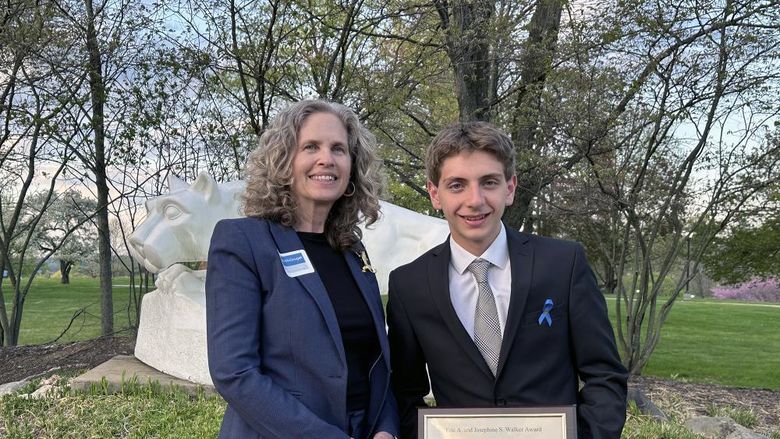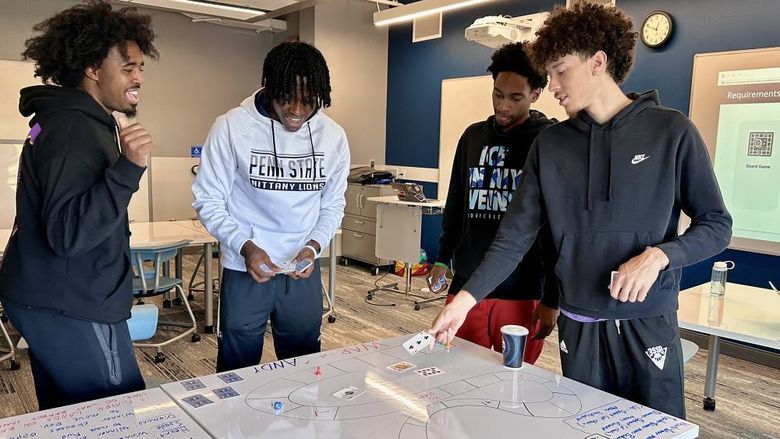
Madhurima Ray, assistant professor of computer science at Penn State Beaver, recently presented to the Institute of Electrical and Electronics Engineers (IEEE) Women in Engineering Student Branch Affinity Group at the University of Jaffna in Sri Lanka.
SRI LANKA — Madhurima Ray, assistant professor of computer science at Penn State Beaver, recently presented to the Institute of Electrical and Electronics Engineers (IEEE) Women in Engineering Student Branch Affinity Group at the University of Jaffna in Sri Lanka.
Ray — who in 2024 was elevated to senior member status in the IEEE, a professional association for electronics engineering, electrical engineering and additional related disciplines — spoke about Software-Defined Networking (SDN) traffic management. The event was part of the IEEE’s speaker series “Igniting Research Passion.”
Ray said she was contacted via LinkedIn by the chairperson of the IEEE Women in Engineering Student Branch Affinity Group to speak at an online session focused on research with the field of network traffic management.
“I was both honored and pleasantly surprised by the request, especially considering I had no prior connection to the university,” Ray said. “The chairperson had discovered my profile through Google Scholar while exploring the topic of ‘network,’ and after reviewing several researcher profiles, she found mine particularly relevant and interesting.”
Ray said she was asked to provide an overview of the field, related subtopics and research opportunities suitable for undergraduates.
“I chose to focus on Software-Defined Network traffic management, a cutting-edge subdomain of network traffic management, to help students understand its significance and research potential in the evolving landscape of network technologies,” she said.
Ray said the session was primarily targeted toward undergraduate students, especially those in their third and fourth years of computer science and computer engineering, who are in the process of selecting or advancing their research topics.
“Undergraduate students frequently have limited exposure to the fundamentals of conducting research. Even if they have studied subjects like Computer Networks as part of their curriculum, they may not be familiar with the current advancements or emerging areas of interest within those domains,” Ray said. “Given their academic stage, the need to introduce them to current and emerging areas of research was essential for their success. First- and second-year students also participated to gain early exposure to research fundamentals and trends.”





